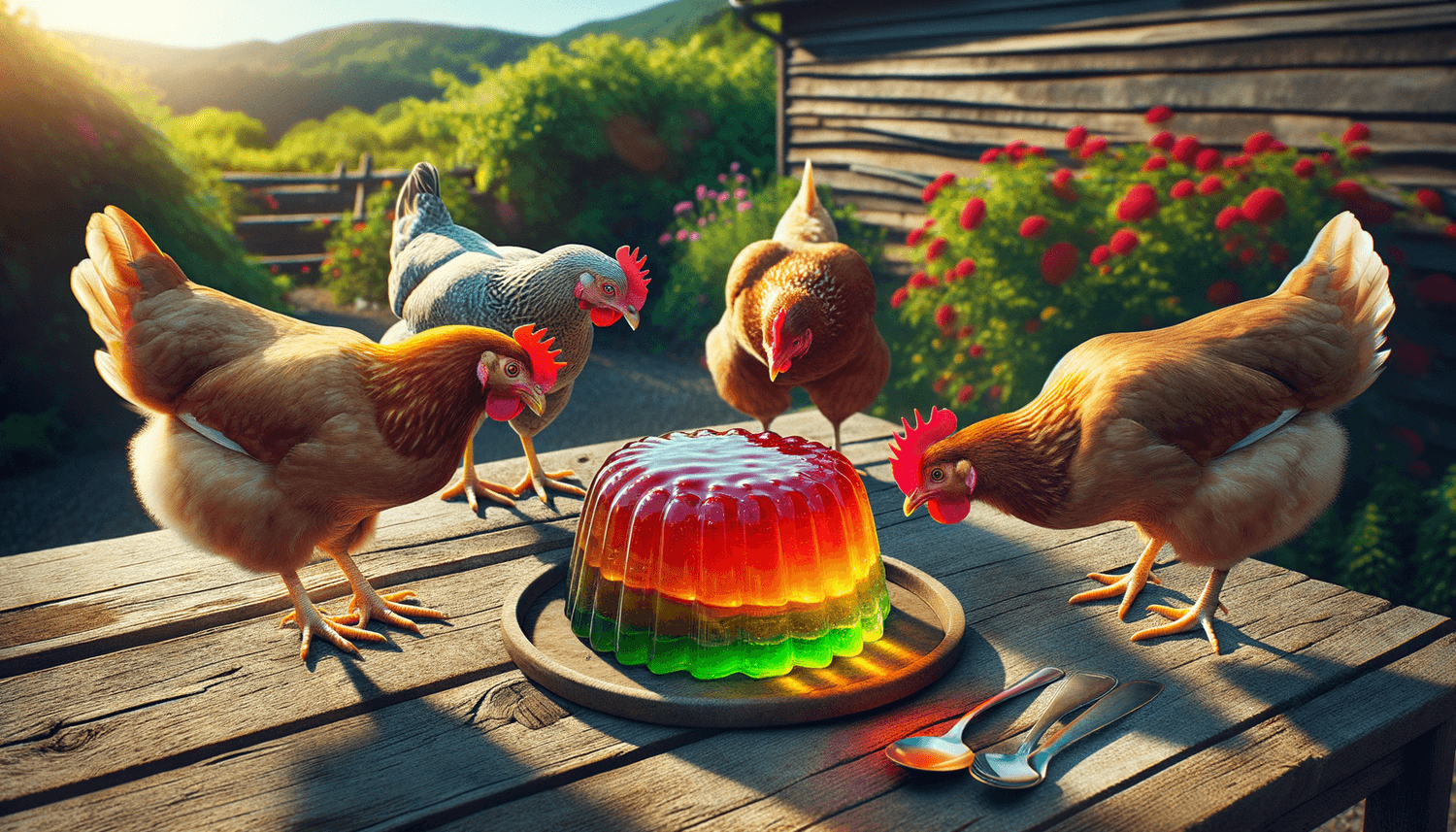Yes, chickens can eat jelly in very small amounts as an occasional treat. However, due to its high sugar content and lack of nutritional value, it is not recommended as a regular part of their diet. Feeding jelly to chickens should be done sparingly to avoid health issues such as obesity and dietary imbalances.
Quick Summary
- Chickens can eat jelly as a rare treat.
- Jelly has a high sugar content with minimal nutritional benefits for chickens.
- The key risks include obesity and dietary imbalances.
- Feed only tiny amounts infrequently, if at all.
Overview of Jelly
Jelly is a sweet spread made by boiling fruit juice with sugar and a gelling agent, typically pectin. While it provides a burst of energy from simple sugars, its nutritional value for chickens is minimal, lacking in essential proteins, vitamins, and minerals that are crucial for a chicken’s health.
Benefits and Risks of Jelly for Chickens
Jelly offers no real health benefits to chickens. The primary risks associated with feeding jelly to chickens are its high sugar content, which can lead to obesity, and the lack of essential nutrients, which can result in a poorly balanced diet.
Feeding Guidelines
If you choose to feed your chickens jelly, it should only be given in tiny amounts as a rare treat, not exceeding 1 teaspoon per chicken and not more frequently than once a month to avoid any negative health effects.
Alternatives
Instead of jelly, consider offering your chickens healthier treat options such as small pieces of fresh fruits like berries or apples, which provide natural sugars along with beneficial nutrients.
Expert Opinions
Poultry nutritionists and veterinarians generally advise against feeding chickens high-sugar foods like jelly. A balanced diet for chickens should prioritize grains, proteins, and vegetables, with fruits given in moderation.
Frequently Asked Questions
The following are common questions that might arise after learning about the suitability of jelly for chickens:
How often can I give my chickens jelly?
Jelly should only be offered to chickens very sparingly, if at all. Once a month is more than enough for a tiny treat of no more than 1 teaspoon per chicken to prevent health issues.
Is jelly harmful to chickens?
While jelly is not immediately toxic to chickens, it is high in sugar and provides no nutritional value. Feeding jelly in large amounts or frequently can lead to obesity, dietary imbalance, and other health problems.
What are some healthier treat alternatives to jelly for chickens?
Healthier alternatives for chickens include small amounts of fresh fruits, like berries and apple pieces, which provide natural sugars and essential nutrients. Always ensure that treats make up only a small portion of the chicken’s diet.

















